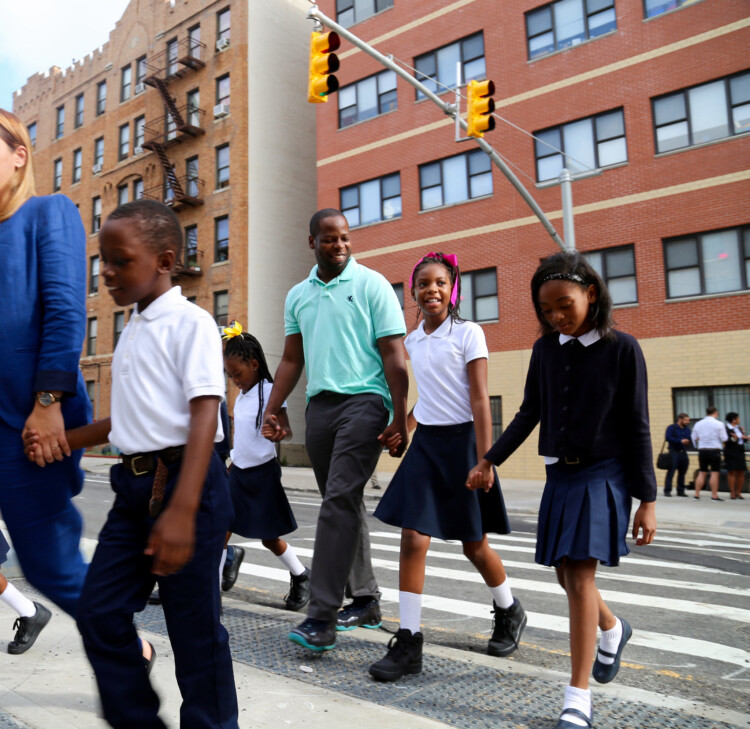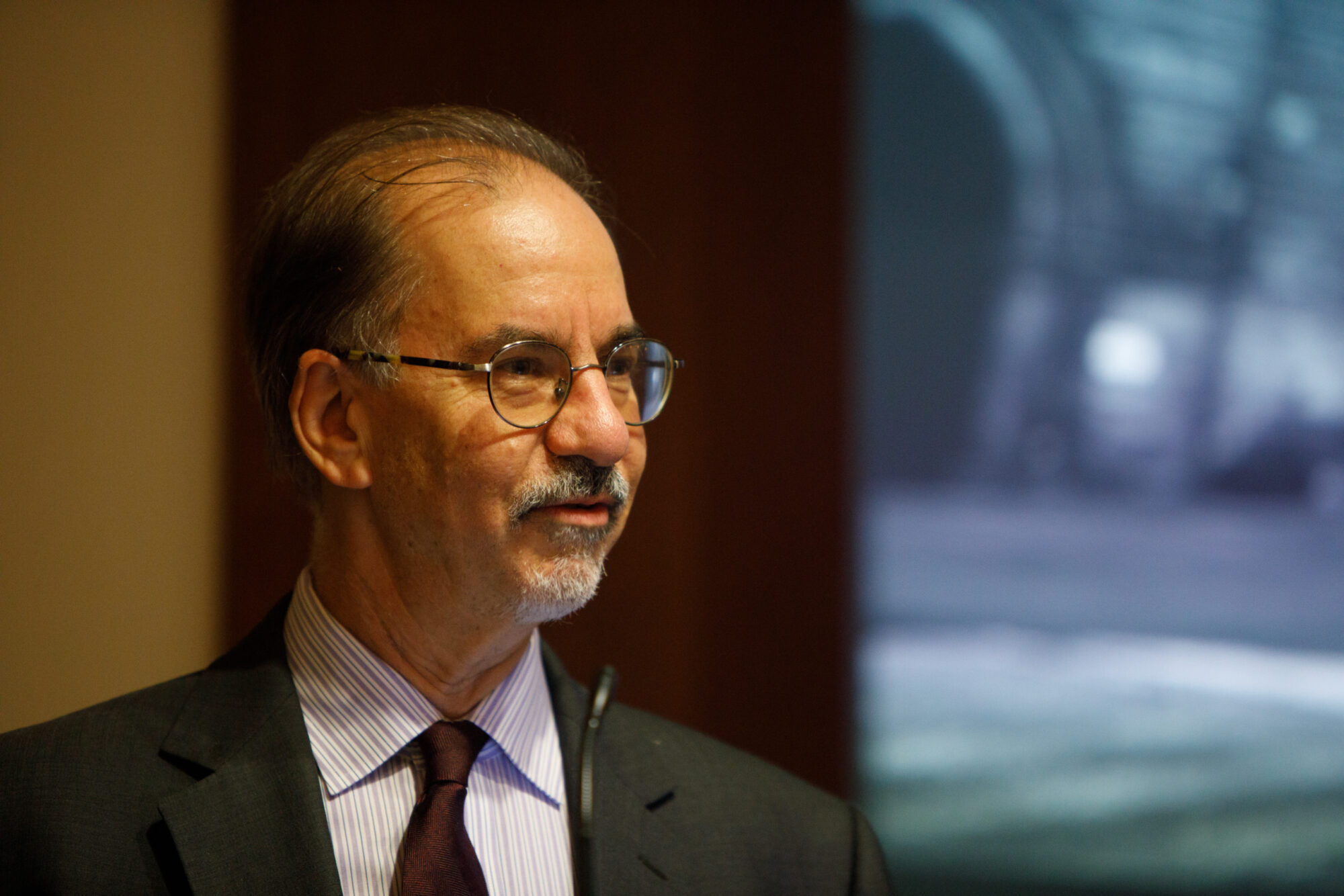From the mayor of New York to President Obama and Pope Francis, hardly a day goes by without a prominent leader decrying the degree of inequality in the United States and worldwide. Our view at the Foundation is that inequality is the major problem confronting our nation and threatening our future. Our goal is to contribute to solutions through our emphasis on research and our focus on young people ages 5 to 25.
Here are four key points to consider:
- The level of inequality in our country is exceptionally high.
- High levels of inequality are economically and socially harmful.
- Social policies can mitigate inequality.
- We need research to identify effective programs, policies, and practices that reduce inequality.
Inequality in education
Inequality in education has increased in recent years. Stanford researcher Sean Reardon has shown that the achievement gap between those at the top and bottom levels of family income (the 90th and 10th percentiles) has expanded over time and is now double the size of the black-white gap. Other researchers have shown that access to and completion of college have become more unequal over the last three decades. Less than 10 percent of young people from families in the lowest income quartile now obtain college degrees, as compared with more than half of those from the top income quartile. Inequality in U.S. education is exceptionally high in comparison with other countries. In a recent international study of literacy, socioeconomic differences in performance were greater in the United States than in any other nation.
Consequences of inequality
Inordinately high levels of inequality are harmful to economic progress and social cohesion. Young people who do not achieve even a basic level of academic performance or do not complete at least a high school education are limited in their capacity to contribute to the U.S. economy. Barriers to college entry and completion result in a waste of talent that could contribute to economic development.
Educational inequality is also socially divisive. Schooling provides a common socializing experience that forges bonds despite differences in origins, creating social networks that cross the boundaries of families, communities, and backgrounds. These networks help knit the fabric of American society and instill shared values. In addition, because educational success predicts future economic success, as education becomes increasingly socially stratified, the prospects for social mobility across generations are diminished.
While it is widely agreed that inequality is a problem, economists continue to debate how bad the consequences are and how inequality may create incentives to motivate performance. There is no question, however, that young people who are born into economic and social disadvantage have fewer opportunities for advancement and lower educational and occupational achievements in adulthood.
Social policy can help
In 2014, we mark the 50th anniversary of President Lyndon Johnson’s War on Poverty. Clearly, the war has not been “won.” About 15 percent of Americans are below the poverty level, including nearly 22 percent of children. What does this say about the chances for social programs to reduce inequality? In fact, as our colleagues at the Russell Sage Foundation have reported, poverty would be even more widespread without social policies such as social security, food stamps, school lunches, the earned income tax credit, housing assistance, and unemployment insurance. Far less has been done to limit inequality on the other end of the spectrum, as income levels among the top 20 percent of earners have continued to rise, largely unimpeded by tax policies or other approaches. Nonetheless, the success of anti-poverty programs shows that inequality can be mitigated by social policy.
No less dramatic and perhaps even more lasting are programs, policies, and practices that reduce the effects of unequal circumstances on child development and the opportunities and outcomes of the next generation. High-quality early education programs give children from low-income families a boost, although these benefits may be lost as children advance in school if they attend lower-quality schools. Programs that promote healthier parenting, family-school engagement programs, and classroom instructional practices that combine higher-order skills with a supportive environment have been shown to elevate student performance.
With all these examples of success, why does inequality remain so high, and why are its effects growing? First, although effective responses have emerged, they are modest compared to the scope of the problem. No single program or policy will close the achievement gap or eliminate disparities in mental or physical health, education, juvenile justice, or social mobility. Second, programs take time to yield impact. The benefits of evidence-based school reform, for example, often do not emerge until a reform has been in place for three to five years, and the effects of high-quality child care may not become apparent for a decade or longer.
Research can help build and assess responses to reduce inequality
Prior research and development demonstrate that social policies can reduce inequality and its effects on young people, yet wide disparities remain. Substantial new efforts are needed to identify approaches that will reduce inequality in youth outcomes for future generations.
At the William T. Grant Foundation, we are convinced that high-quality social science research on youth development can play an important role in addressing the challenge of inequality. Our approach to inequality is distinctive in that it combines the following elements:
- We invest in research that addresses inequality.
- We focus on young people ages 5–25.
- We intend for the research we support to help build, understand, test, and improve programs, policies, and practices that reduce inequality.
- We have a long tradition of supporting tools that prove useful to a wide range of researchers.
- Our portfolio is broadly interdisciplinary, drawing on ideas and tools from sociology, psychology, and beyond.
The urgent need to combat inequality in the United States is widely recognized, and voices from many spheres are calling for solutions. We encourage researchers to pursue funding from our Foundation to answer this call, and we invite policymakers and practitioners to join with us in considering the potential for research to identify promising approaches to our greatest problems.








